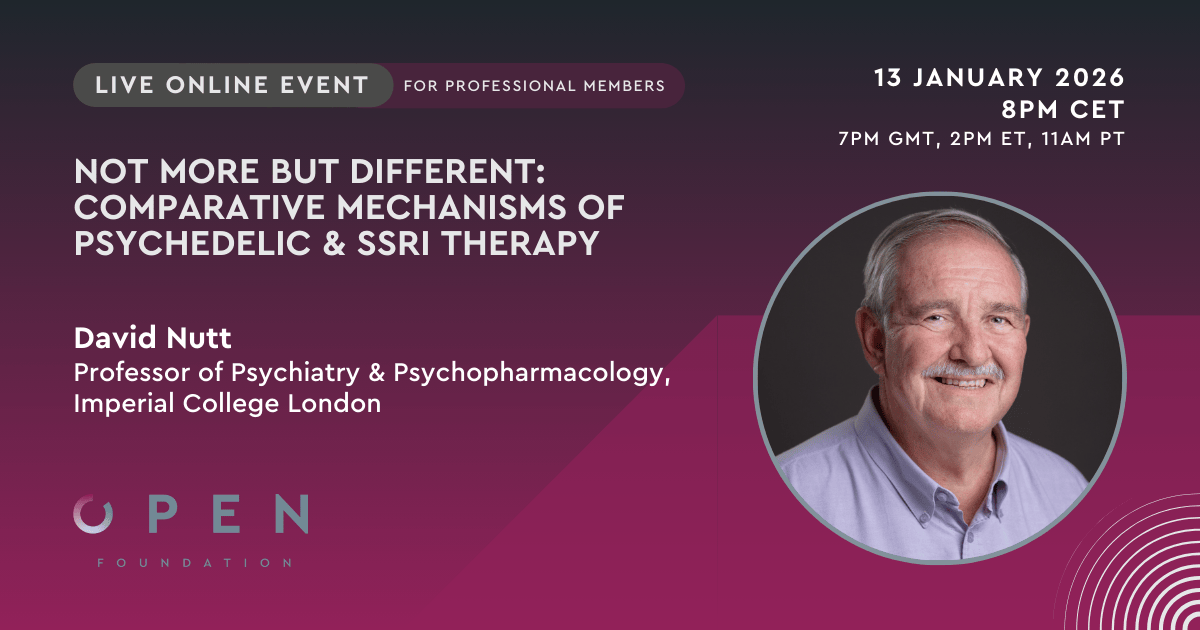The British Psychological Association recently published a special issue of their accompanying journal The Psychologist (September 2014, vol. 27) devoted to the rising popularity of research into psychedelics. This is the first time such a lengthy publication, illuminating the intricacies of the psychedelic experience, has appeared in the journal.
David Nutt claims, in the first article of the issue, that the scientific disinterestedness of the past can be explained by society’s attempt to deny psychedelics their “value and importance” in the study of altered states for moral reasons. The political reasoning is the following one: how can we not but condemn research into psychedelics if this poses the risk that it would legitimize recreational use? However, Nutt asserts that despite the possible societal risk “(t)he failure of the scientific community, particularly neuroscientists, to protest the denial of research on hallucinogens is one of the most disturbing failures of science leadership in the past century, and it must be rectified. Psychologists and other neuroscientists must demand the right to study these drugs” (2014).
Many neuroscientists did not wait for Nutt’s summoning to start unraveling the relationship between psychedelic drugs and the human brain. In How do psychedelics work on the brain? (the second article) Carhart-Harris, Kaelen and Nutt (2014) describe the psychedelic experience, starting at the neurotransmitter level and ending at the neuronal large-scale systems of the brain. The obvious question for psychology (as is stated in the title of the special issue) is whether the neuronal level can tell us anything about the psychedelic experience that is within our field of meaning or, as Jameson puts it, our “cognitive mapping” (1991). The title of the special issue suggests that human psychology, by adopting neuroscientific knowledge, can do just that.
In the third article, Vaughan Bell (2014) opposes this approach and asks a different question: what can we learn from the ways in which other societies approach hallucinogenic drugs? Bell asserts that “drug-induced hallucinations are often discussed as if they can be entirely understood in terms of their chemical action in the brain”. In Bell’s view it is not the brain, but rather culture and the relationship between the individual and her social context where the real magic happens.
The fourth article, by Henry David Abraham (2014), connects the three previous ones by describing the author’s investigations into hallucinogen persisting perception disorder (HPPD). Here Abraham gives a phenomenological reading and tries to describe the complex dynamic between the neuronal and the psychological dimensions of HPPD.
Charles Grob, Ira Byock and Erica Rex, in the fifth article Viewpoints: Experiences of hallucinogen treatment (2014), extend the view posited by Abraham and give an account of the exciting ‘new’ realm of psychedelic treatment and psychological assistance. “Multiple participants”, says Byock, “report not mere alleviated anxiety or depression, but also an enduring sense of well-being. Some expressed feeling at peace, grateful for their lives, forgiving toward others and toward themselves and being less fearful and more confident about the future”. The treatment intervention for “existential anxiety” proposed by Grob (2014) is seen as just one of the many possible applications of psychedelic substances.
All articles appear in the September edition of The Psychologist (volume 27, part 9) “A brave new world for psychology?”
References
Abraham, H. D. (2014). When the trip doesn’t end. The Psychologist, 27(9), 670-673.
Bell, V. (2014). Cultures of chemically induced hallucinations. The Psychologist, 27(9), 666-669.
Carthart-Harris, R., Kaelen, M., & Nutt, D. (2014). How do hallucinogens work on the brain? The Psychologist, 27(9), 662-665.
Grob, C.S., Byock, I.R., Rex, E. (2014). Viewpoints: Experiences of hallucinogen treatment. The Psychologist, 27(9), 676-679
Jameson, F. (1991). Postmodernism, or, the cultural logic of late capitalism. Durham, NC: Duke University Press.
Nutt, D. (2014). A brave new world for psychology? The Psychologist, 27(9), 658-661.









